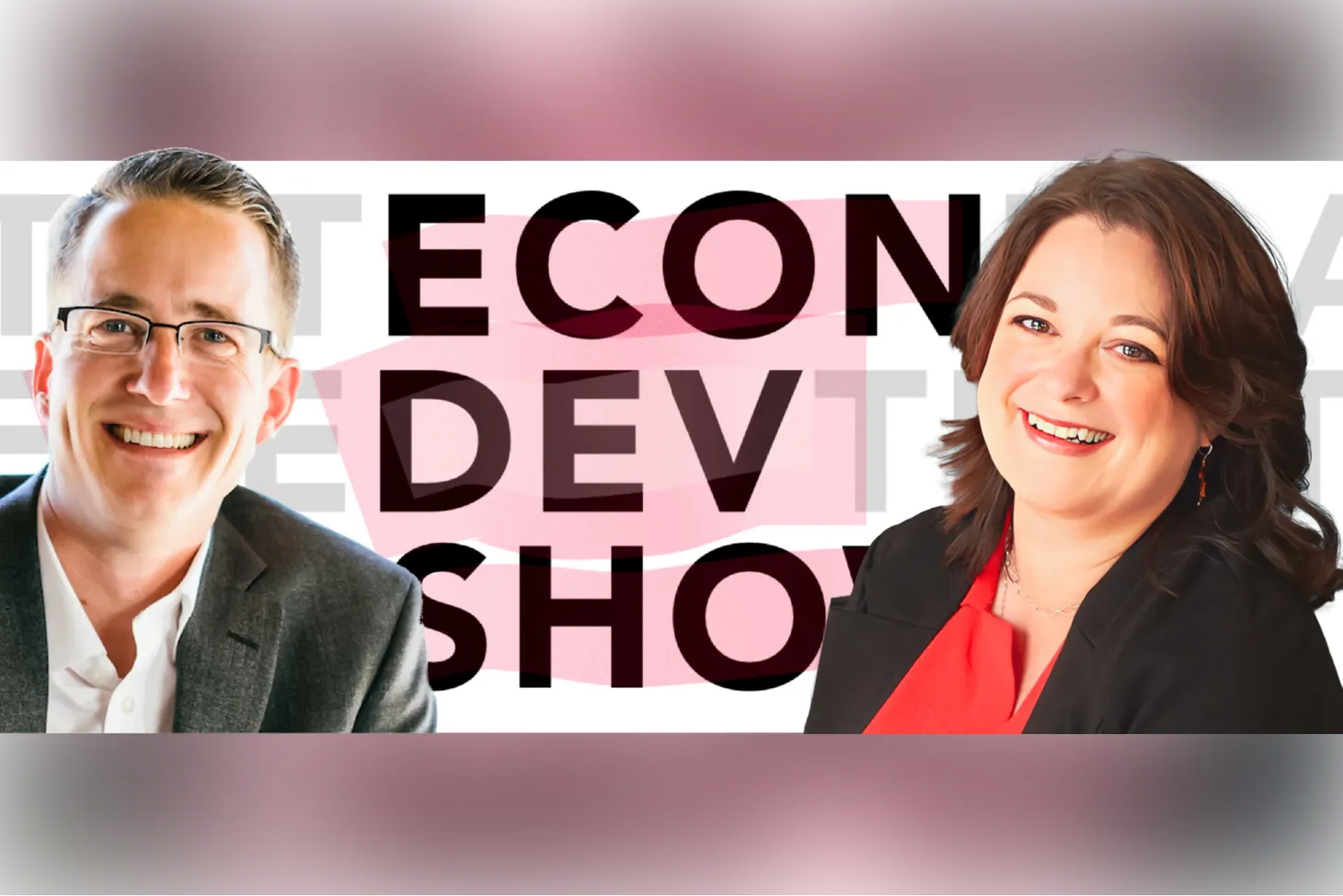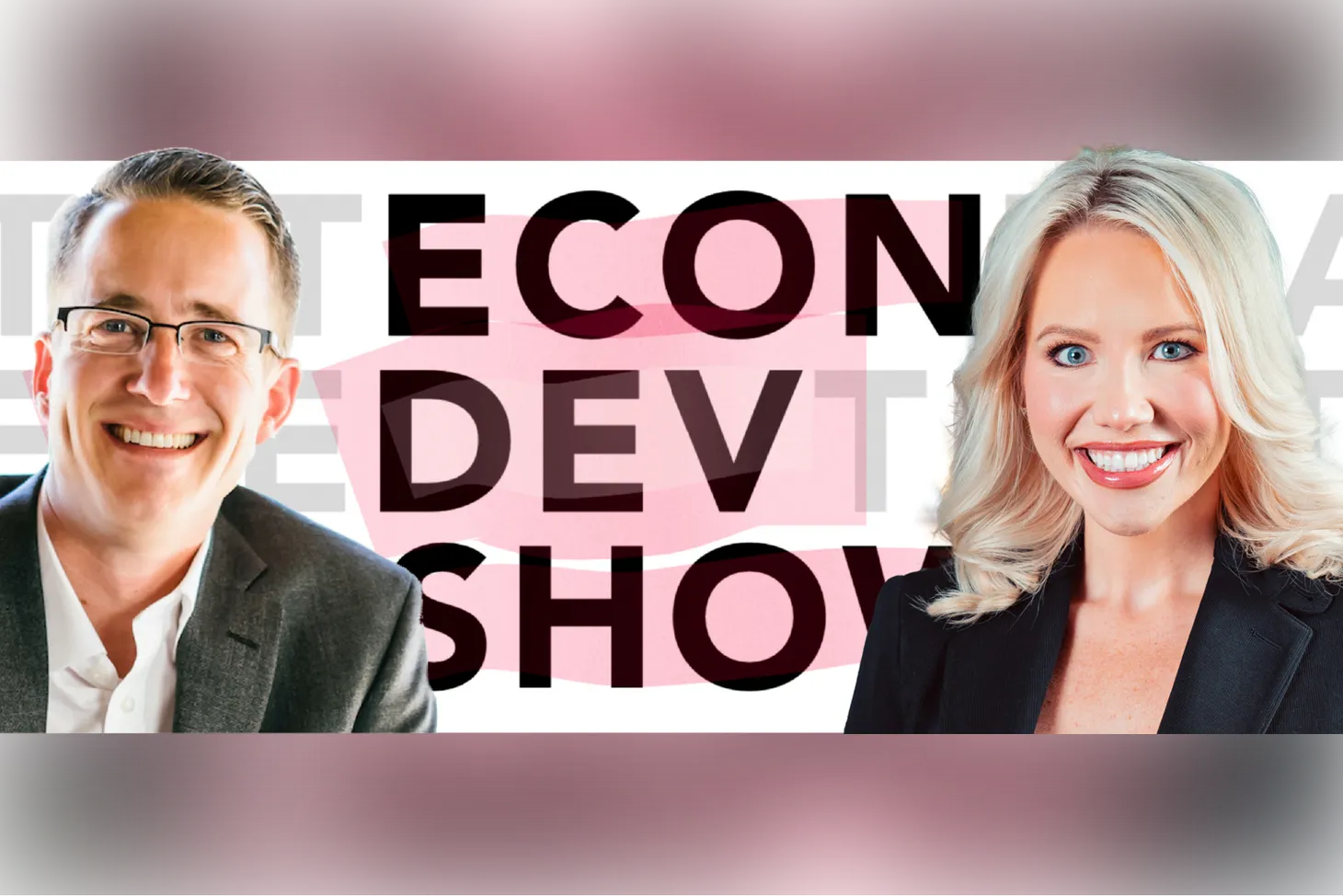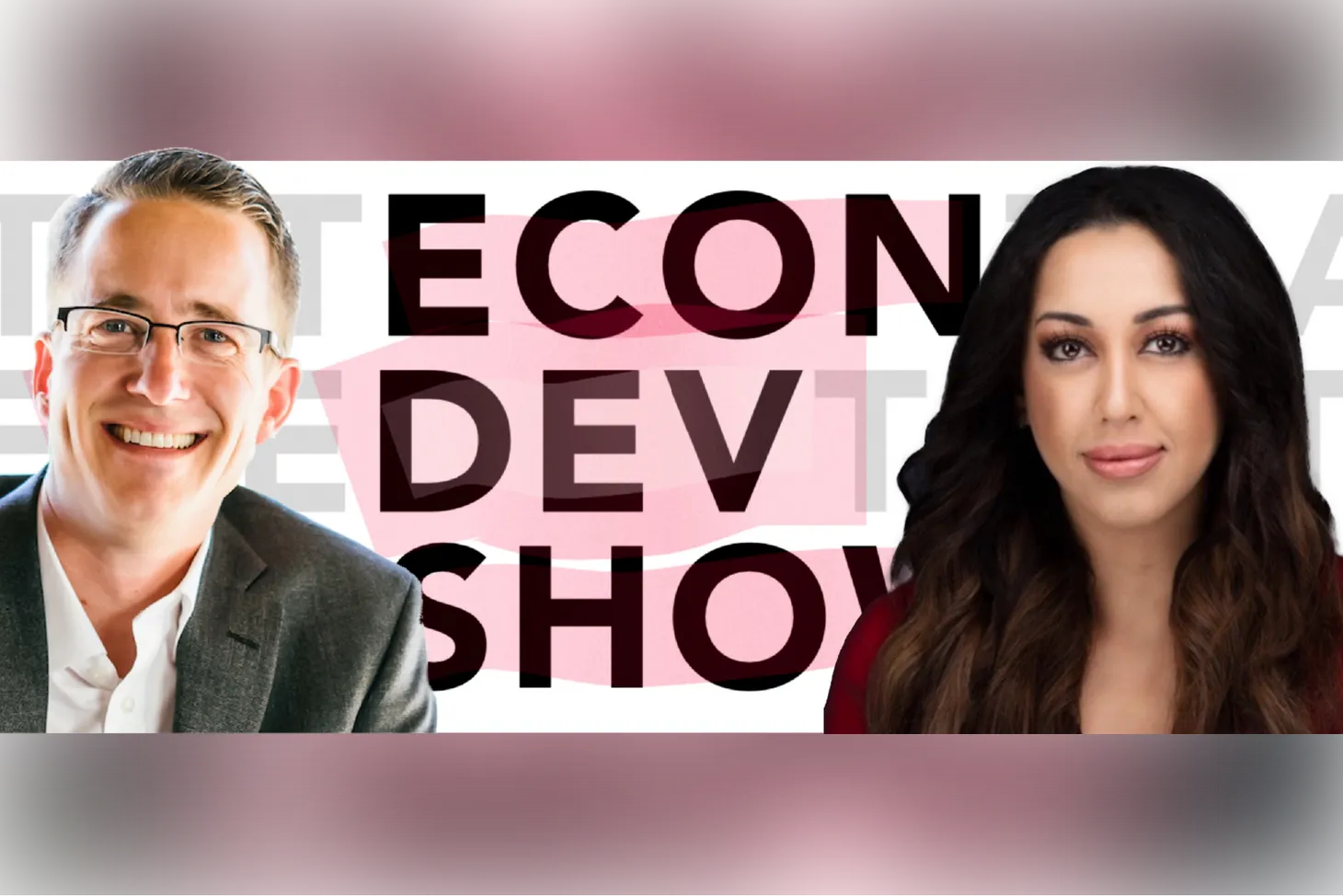Podcast Transcript: #104 With Chad Miller
Prefer to read?

Table of Contents
Prefer to listen? Here's the podcast.
Dane Carlson: Our episode today is brought to you by Kathode Ray Media, a full service marketing agency that connects government organizations to their communities. Contact them to learn more or ask for a free no obligation consultation.
Dane Carlson: Welcome back to the Econ Dev show. Our guest today is Dr. Chad Miller. He is the graduate coordinator of the Master of Science and Economic Development Program at the University of Southern Mississippi College of Business and Economic Development. Chad, welcome to the show.
Chad Miller: Thank you, Dane. That's kind of a mouthful, so forth.
Dane Carlson: It is kind of a mouthful. I was gonna say that.
Chad Miller: So how should I call you? Should I call you Chad? Should I call you Dr. Chad? Should I call you Dr. Miller? How should I refer to you?
Chad Miller: No, Chad's fine. I have my students until they graduate call me Dr. Miller, professor. But once they get out, we always say we're educating colleagues.
Dane Carlson: Excellent. Good. So, why don't you explain that mouthful? What is the Master of Science of Economic Development Program at the University of Southern Mississippi?
Chad Miller: The Master of Science program is the first graduate program in the nation. We started in 1980 with the first class, and 1982 was the first graduates. Since then we've been putting out economic developers really focused on the nuts and bolts of economic development and what economic developers do. We're well known. We have graduates all over the nation doing all kinds of things and it's very applied. There are just not many programs, maybe half a dozen who focus on the practice of economic development.
Dane Carlson: So it started in 1980. What was the impetus for starting the program? What was the need?
Chad Miller: Well, it was a little before my time, but I understand there were some funding opportunities. A number of universities passed on it. Southern Miss being entrepreneurial, they took it up. Initially it was in the planning department with geography and so forth. And then we've moved around a bit. But the last 10 years or so, we've been in the College of Business, which seems like a natural fit.
Dane Carlson: Sure. Does that represent a transition or a change in the industry from planning to business? Or is that just a factor of the university?
Chad Miller: That's an interesting question. Probably a little bit of both, but we really found the skills that economic developers need are very business oriented. Planning and geography, knowing that helps, but the two professions have become a bit different. There are lots of planning programs where you learn GIS and urban planning, so we're more of the business aspect of economic development.
Dane Carlson: Gotcha. So when I talk to economic developers all over the country, I tend to ask them how they got into the profession. Did they train for this? Or did they fall into it? Almost invariably they've all fallen into it. So what do you get by getting this training and really starting your career with this solid foundation from the master's program that you don't necessarily get just on the job?
Chad Miller: We really focus on the science of economic development. We give them hands-on skills. We give them a lot of the data tools - how to do target industry analysis, how to do retail analysis, how to analyze a company. So real science. You're right that most people get into economic development by chance - they fall into it. There's a classic article by John Levy in the 1990s serving what they came in from - newspaper, preacher, and so forth. There are not that many trained economic developers from the undergrad to graduate level and up. So we're kind of filling that area, but it really does prepare them with the nuts and bolts. Our emphasis is to add value on day one so they can walk into an EDO and know how to fill out an RFP, know how to respond to a company, know how to work with elected officials. They won't be as refined, so we recommend career development after that through OUEDI, EDFP, and that whole progression. But to give them the nuts and bolts and know the terminology is our goal.
Dane Carlson: Right. And so have you had some students that have gone on to great careers in the industry? I'm sure you have, but do any sort of come to mind?
Chad Miller: Well, some of the big names - Dave Rumbarger up at Tupelo, Chandler Russ in Natchez, Scott Martinez out in Tyler, Texas, Jule Smith working for JLL, Chad Newell at Area Development Partnership. A lot of these solid economic developers and well known professionals came through. I've seen a number of alumni come through your interviews as well. It's interesting to see alumni come through one of your talks.
Dane Carlson: Yeah, that's great. Let's take a step back from this - are most of your students people who have just finished a bachelor's degree and are at the beginning of their career? Or do you get students that were practitioners in the field that come back to expand their education?
Chad Miller: I was just looking at the numbers in preparation for this. About 40% are traditional students who did undergrad and are going out. Another 30% are career transition - they have been working as an office administrator or in press and are looking to transition to economic development. Another 20% are economic developers who want a master's degree from an accredited university like ours with ACSB accreditation. So those feel that a master's is what a BA used to be - they need a master's. So that's the split, but the largest group is the traditional students.
Dane Carlson: Interesting. So where do you see the industry going from your perspective? Is it growing, shrinking? What does the future hold?
Chad Miller: Well, I do think it's growing. Our graduates, if they come in with the soft skills, are getting hired before they finish. We're one year, so it's not too much to address general soft issues. But it's hiring and growing, and it is becoming more technical, more expertise. It's amazing the amount of technology economic developers need to be prepared to handle and even if they're not using it, to be sophisticated connoisseurs of the data out there because it is becoming more data driven. Just last week our MEDC was talking to site selectors about using AI. So how is that going to affect the field? We're trying to keep ahead of those things and keep them trained, but I see it becoming more technical and professional as we go on. So a good fit for that science education going into it.
Dane Carlson: Sure. What are some other examples of these technical skills that economic developers need?
Chad Miller: Well, it starts in the office with the CRM system, so they need to manage clients, know them, and track them. When you're getting out there, JobEQ, Emsi, Implan, ESRI ArcGIS - there are a whole bunch of these technologies we try to educate students on to help their education, but also help those companies. But it's constant even for us to keep up-to-date on the latest technology being used.
Dane Carlson: How do you keep up? I'd imagine that's a huge part of the challenge in your position.
Chad Miller: Well, some of it is following blogs and podcasts like yours to listen to what economic developers talk about. We try to attend professional conferences as much as we can. And we really keep track and keep in touch with our alumni - strong alumni base, talk to them. So when I talk to them or meet with our advisory council, it's "Hey, what technologies do we need to cover?" And we'll do periodic surveys of our alumni asking what is the key technology. In a recent one, Community Analyst came up as key. ESRI ArcGIS is another. So we incorporate that into the program. But it is constant to keep out there and keep in touch with the profession about what is needed.
Dane Carlson: Sure. How big is the program - how many staff, professors, etc?
Chad Miller: We have two full-time professors, and then a number of different adjunct professors - working professionals who teach in the program like Dr. Ed Sills and Dr. Smith. We also use what we call reflective practitioners. Typically an academic doctorate who has experience plus an experienced economic developer as a co-teacher, to get them engaged and share real-world examples. Then we teach in a hybrid format, which allows us to bring in guest speakers from around the world to get that real world experience. Probably half the classes are guest lecturers - economic developers, technology people, and so on.
Dane Carlson: Interesting. You mentioned speakers from around the world - is economic development the same everywhere or are there differences?
Chad Miller: In developed countries I think there's a lot of commonality. In developing countries, there's still a different profession and programs focused on international economic development. Those are more on basics like water, sewer, etc. Of course parts of America face those same issues. But with increased FDI and such, I think there is more commonality between Europe, Canada, the US and Mexico. They adopt the same data-driven principles and deal with the same site selectors, so there's common ground.
Dane Carlson: Interesting. That international economic development and developing countries, is that development economics? Is that what I read about?
Chad Miller: Yes, I would call that development economics. There are probably 80-100 programs in international economic development or development economics, whereas maybe only half a dozen like ours focused on the US.
Dane Carlson: Interesting. Yeah, I always wondered about that when I saw it. So you said the economic development profession needs to better inform the public about what economic developers do and the career opportunities. Let's talk about that - what do we need to do better?
Chad Miller: One challenge recruiting undergrads is they think it's economics. We need to convey that yes, you need economic principles, but an economist and developer are different animals. Getting that word out, guest lecturing at schools as much as we can to showcase it. Students see results like a company attraction, but don't track who made that happen. If we can make it more public, showcase that side. Even basics like there's no NAICS or SOC code for economic development to make it more visible as a career path. Perhaps going to high schools about career opportunities because it isn't coming up with career counselors or advisors.
Dane Carlson: You're right, that makes sense. Do you touch on the political side? My readers and listeners say the biggest challenge is dealing with elected officials and politics - the ins and outs. Does your program deal with that? Any advice?
Chad Miller: We do touch on the politics, working with boards, elected officials, the press - it's part of the curriculum in case studies and theories. But a lot is learned through experience. We expose them that you'll report to elected officials and boards. Here are board types, recommendations, but that lived experience is key. We give tools to work with them, but the art is learned on the job.
Dane Carlson: You mentioned there's an art and a science to economic development. What makes up the art side that you see?
Chad Miller: The art would be boards, elected officials, negotiation - that really takes experience to develop. Even interpreting data. We discuss labor sheds. You can look at hard numbers on where to set it, but until you talk to a local developer, they may say part of that data isn't really our labor shed. It's interpreting and making sense of the raw numbers. And working with people - economic development is so much about your network and connections. That experience and how you behave is the art side.
Dane Carlson: Interesting. As the industry becomes more technical, will that art still be important?
Chad Miller: I think it will be important, but data will become more the common language between connections. Site selection can become less backroom deals and more speaking the data language. But it comes down to networks - you need the connection first to convey your data message.
Dane Carlson: Right, that makes sense. As it becomes more data focused, there's an old guard with connections and networks, and younger tech-focused practitioners. What advice on developing networks for them?
Chad Miller: Well we emphasize network development in the program. Simple things like LinkedIn to track connections made, guest speakers to connect on LinkedIn and request informational interviews. Encourage attending conferences to network and build connections others have built over decades. I've found developers very open to talking - always tell students to request informational interviews to learn what they do and how they started. The profession is very open and interested in students, eager to keep an eye on promising ones. Even site selectors want to know who is in the program because many developers are retiring, opening slots.
Dane Carlson: Right, I've seen over 50% are nearing retirement. The industry will be radically transformed as that shift happens.
Chad Miller: Yes, many want to mentor a bright student for a few years to take their place. I see that succession planning, trying to bring on younger students with the technical skills.
Dane Carlson: Yeah, that makes sense. Where do you see the country going regarding reshoring and changing relationships with manufacturing in the US and China?
Chad Miller: I think we'll see continued reshoring, but the growth trend will be near-shoring to Mexico and Central America if they get it together. Companies want to diversify from China for resiliency and stability of being closer to home. But it can be hard to do in the US with labor costs and disadvantages. I see reshoring and near-shoring trends as the big shift.
Dane Carlson: To Mexico and Central America when they develop further. I've heard Columbia is like Mexico 10 years ago, so hopefully some gets figured out there. That should be interesting. How did you get into this? I read you were an Army officer - how did that transition to economic development happen?
Chad Miller: After graduating William & Mary, I joined the Army, stationed in the Pacific Rim when Asia was booming in the '90s. I worked in Hong Kong and Vietnam, then came back doing export promotion in Maryland where I first met economic developers and got involved. Then I was hired by Virginia Tech's outreach unit doing economic development from the export side. While working on my PhD, I saw the Southern Miss program which I'd heard of from my work. It was a great opportunity to come to Hattiesburg.
Dane Carlson: Fantastic. Is there anything contrarian you think about the profession that others maybe don't?
Chad Miller: I don't know if it's contrarian, but one thing we haven't talked about is diversity in the field. I think there's a need for it, and we're seeing more diverse students racially and gender-wise. As minorities and women gain leadership, I think that will change the profession. Those students are more interested in community development, building social networks and capital in underserved communities. I think that could be a trend - less attracting big companies and more working on downtowns and community development. Some pressure off the traditional recruitment side by looking at other values.
Dane Carlson: Do you think that's because it's been underappreciated and fallen by the wayside organically? Now we have to actively work on it versus 50 years ago?
Chad Miller: Right, we used to talk about the three-legged stool of economic development - attraction, retention, and small business development on a base of community development. That community piece is becoming more prevalent, driven by talent, quality of place. Economic developers will have to know more about that, which relates back to planning where the program started. It's come full circle.
Dane Carlson: Oh that's fascinating, coming back to those roots. Is there anything else we should touch on that I missed?
Chad Miller: Just that there are a number of programs teaching economic development - really encourage developers to engage with local universities, help recruit students. We'd love more students. Other schools like Murray State, Penn State would as well. Hopefully developers encourage upcoming students that after undergrad, think about a one-year master's program. Often paid with an assistantship, so you start your career with a degree and many of the needed skills.
Dane Carlson: Interesting, I hadn't thought of that combo and progression. You keep mentioning CRM - what do you train them on?
Chad Miller: We've used a couple different ones to get experience - right now using Insightly. We just switched to EDOiQ. But we work with various platforms, change up every couple years to give new partnerships and skills.
Dane Carlson: Excellent. Well this has been fascinating, I've learned a lot and I hope our listeners have too. If they'd like to reach out to you, what's the best way?
Chad Miller: Give me an email - Chad.R.Miller@usm.edu. I'm on LinkedIn. Or my office number is 601-266-6666 - the 6's make it easy to remember!
Dane Carlson: Right, exactly! Well this has been wonderful, you've been a great guest. Thank you so much!
Chad Miller: Well thank you, I appreciate it. Look forward to reading more of your newsletters and listening to your podcasts.
Econ Dev Show Newsletter
Join the newsletter to receive the latest updates in your inbox.


